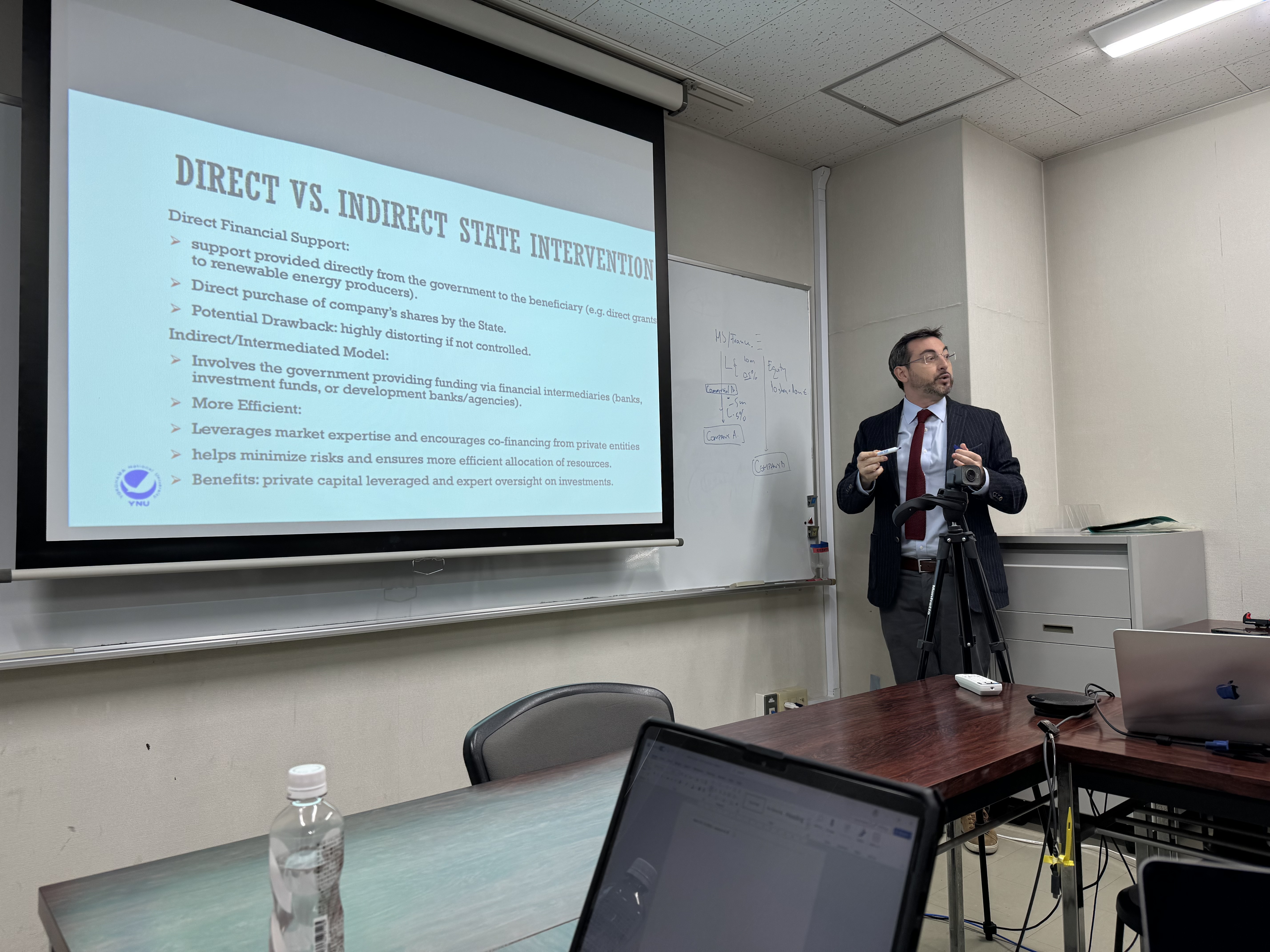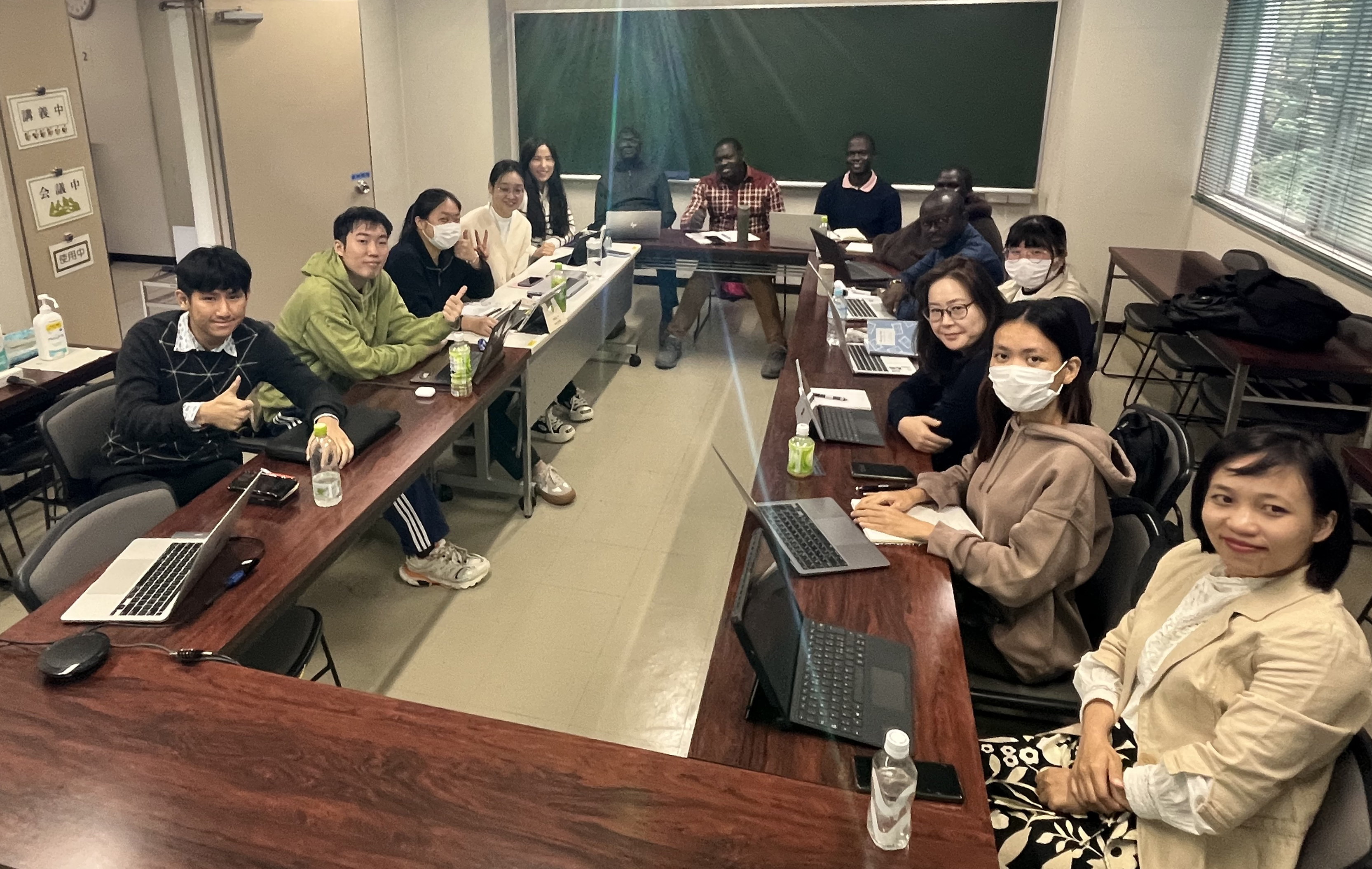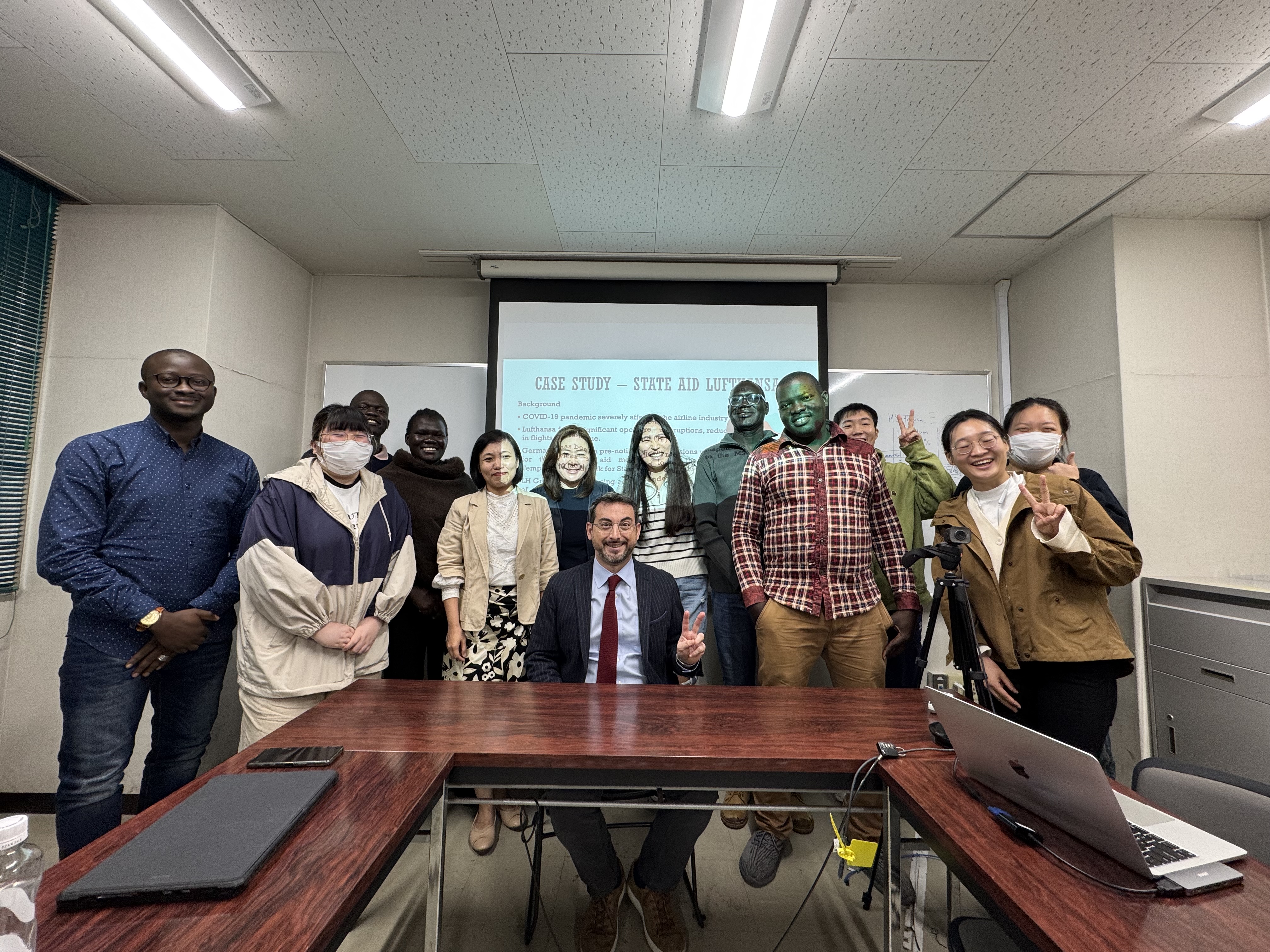- 国際経済法学専攻トップ
- 国際交流
- フローリン・ダスカレスク先生を客員准教授としてお招きしました
フローリン・ダスカレスク先生を客員准教授としてお招きしました
Essay Introducing Professor Dascalescu 15 December 2024
|
2024年10月1日から11月29日まで、Florin Dascalescu先生(欧州投資基金上級法律顧問)が本学の客員准教授として着任しました。同先生は「EUの補助金関連法政策」と題した授業を、コートジボワール、ウガンダ、南スーダン、モンゴル、中国、ベトナム、タイといった国々の留学生14人に対して実施しました。
Dascalescu先生のクラスでは、EU の反補助金措置、国家補助法、および外国補助金規制の内容について詳細に解説が行われました。同先生は情熱的で、講義は、常に学生の質問やコメントを促す、学生との応答が多いものとなりました。また、難解な論点についてもホワイドボードに明瞭な図を記載しつつ丁寧に解説したため、法学を専攻としない学生にとっても、技術的な教材が理解できるようなものでした。例えば、コートジボワール出身の法学以外を専門としている学生は、EUの国家補助法制が例外をどのように捉えているかということを把握した上で、それがどのように評価されているかということをも議論できるほどに理解を深めることができました。Dascalescu先生の授業は、法規則に書かれていることを教えるだけでなく、規則が「完璧なものか」という観点から捉える力を養うものであり、既存の法を超えた視点をも備えることを促すバランスの取れた講義であったことに最大の特徴があったと言えます。
最後の口述試験では、国境を越えた補助金、グリーン補助金、補助金の意味など、論争を招きやすいテーマをグループで検討させることによって、学生が正面から難題に立ち向かう学術的好奇心をかき立てる試みがなされていました。
From October 1 to November 29, 2024, Florin Dascalescu (senior legal counsel at the European Investment Fund) came to Yokohama National University as a visiting associate professor. He taught the class “EU Law and Policies for Subsidies,” in which 14 international students from Côte d’Ivoire, Uganda, South Sudan, Mongolia, China, Vietnam, and Thailand participated.
|
|
 |
|
 |
|
|
|

